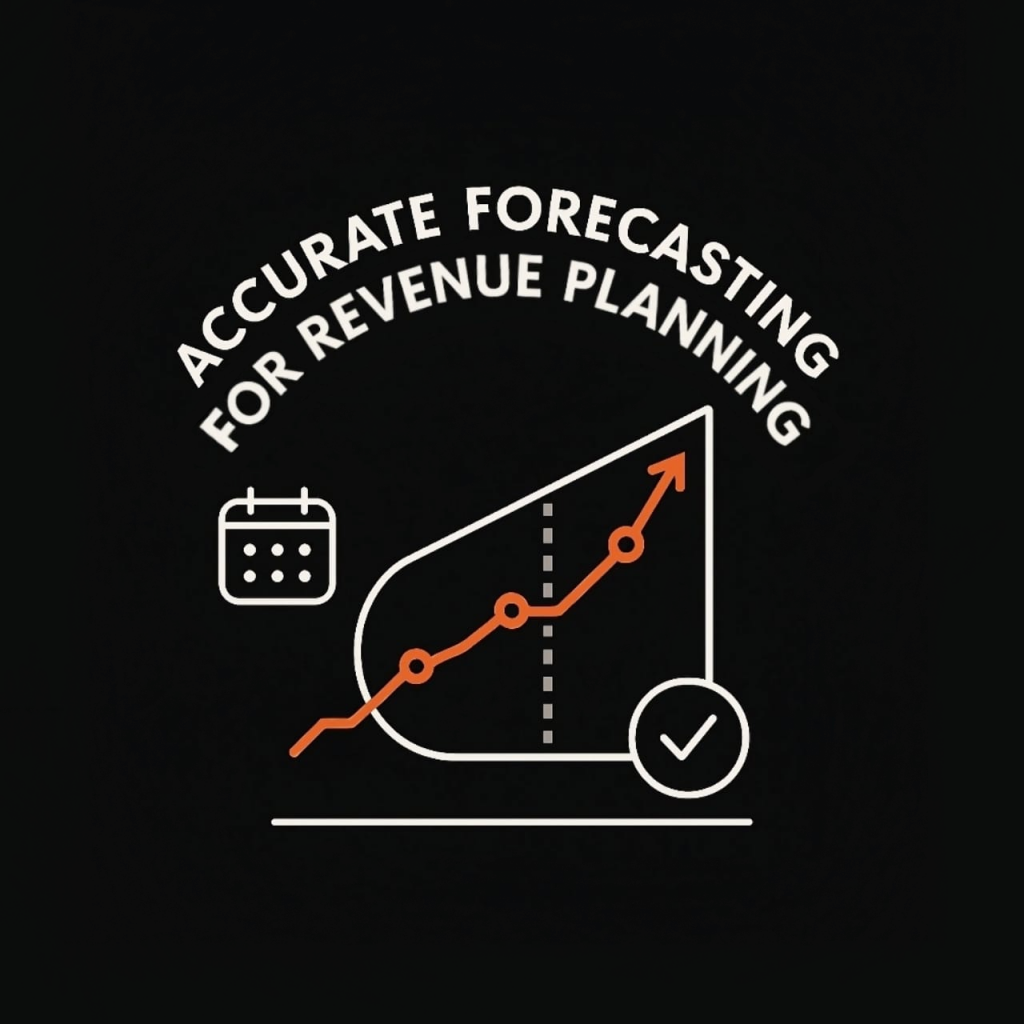Accurate forecasting for revenue planning
Turn guesswork into a growth‑ready revenue outlook
Cash burn, hiring plans, marketing spend—every strategic move hinges on what the business thinks it will earn next quarter. Yet forecasting is often treated as a spreadsheet ritual rather than an operating discipline. In reality, every GTM function forecasts something:
- Marketing predicts event attendance, MQL flow, and campaign ROI.
- Account Executives and SDRs project deals, stage by stage, quarter by quarter.
- Sales leaders roll those deals up, adding their own experience, scrutiny, and (sometimes) optimism.
- Founders & finance teams translate the roll‑up into cash‑flow and runway guidance for investors.
A weak link anywhere in that chain distorts budgets, delays hiring, and erodes investor confidence long before the miss becomes obvious.

Build an organisation‑wide forecasting machine
- Shared methodology
- Everyone—marketing, sales, alliances—uses the same probability stages, exit criteria, and timing assumptions, so numbers add up instead of clash.
- Weekly, data‑driven cadence
- Short, consistent check‑ins surface slippage early. Gut feel is welcome, but it sits next to data, not in place of it.
- Accuracy scorecards
- Track forecast‑vs‑actual for each role. When reps, marketers, and managers see their own hit‑rate trending, behaviour changes faster than any training deck.
- Scenario planning tied to runway
- Finance maps “best‑case, commit, worst‑case” revenue curves directly onto cash position and spend approvals, keeping hiring and program spend in sync with reality.